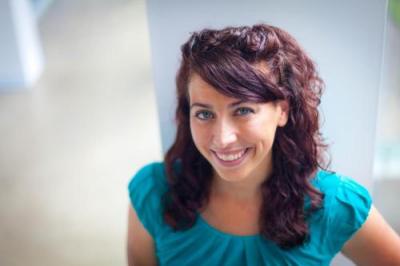Ogan Awarded Jacobs Early Career Research Fellowship

Human-Computer Interaction Institute (HCII) Assistant Professor Amy Ogan firmly believes that the best way to improve educational technologies in international classrooms is to visit those classrooms personally, observing students and learning about how they learn. As a member of the latest class of Jacobs Early Career Research fellows, she'll be able to do just that — and improve education around the globe while she's at it.
Founded in 1989, the Jacobs Foundation aims to provide young people around the globe with better opportunities for development so they can become productive, socially responsible members of society. The Jacobs Early Career Research Fellowship program supports highly talented and creative young scholars with a strong history of successful research who have the potential to become leaders in the scientific community through their contributions to child and youth development. Each fellow receives 150,000 Swiss Francs (approximately $146,000 U.S. dollars) over a three-year period to support their research. Fellows are also encouraged to interact with one another and participate in networking and alumni events.
"I do a lot of different types of work, but one of the things I'm most interested in is my work on international educational technology," Ogan said. "A fellowship like this provides the funding to do the sort of research that I'm incredibly excited about."
Ogan will use the fellowship to continue her strong international research collaborations and field work in Latin America and the Philippines, where she investigates how personalized learning technologies developed in the U.S. can be deployed in different cultural settings — and how those cultural settings influence the success or use of the technologies. For example, her work in Latin America has shown that students work incredibly collaboratively with a computer-based tutoring program specifically intended for individual use. Her team is investigating how that collaboration affects the machine learning underlying the systems, and is developing ways to adapt the system to the classroom — instead of adapting the classroom to the technology.
"I find classroom observation, field studies, and other related techniques to be so important when you're doing this kind of work," Ogan said. "You think you know what a classroom is like. You've been in a hundred of them in the U.S. But then we try to export our technologies without deeply understanding the different cultural context. I was really impressed that even though the foundation's goals are youth development worldwide, they're open and excited about educational technology and opportunities."
You can learn more about Amy Ogan from her HCII faculty spotlight and her Jacobs Foundation Fellowship page.
Story by Susie Cribbs (DC 2000, 2006)

